ABOUT
IMU is Malaysia’s first and most established private medical and health sciences university with over 30 years of dedicated focus in healthcare education. IMU holds the distinction of being the initial private medical university to attain self-accreditation status from MQA and has received SETARA’s highest accolade for the third consecutive time.
Established Private Medical & Health Sciences University
Students
partner
alumni
programmes studies
Over 30 Years of Shaping Healthcare through Innovation, Imagination and Insight

DISCOVER IMU’S VISION FOR CHANGE IN HEALTH
Welcome to IMU, where possibilities are limitless, and education knows no bounds.
Our journey of evolution started in 1992, a pivotal year when Malaysia's first global medical partnership programme was founded. This groundbreaking initiative gave Malaysian students the opportunity to begin their journey locally before venturing to one of the five renowned Partner Medical Schools (PMS) across the globe. Since then, IMU has transcended its initial roots, establishing partnerships with over 35 esteemed universities worldwide—from Australia, Canada, China, Ireland, New Zealand, the United Kingdom to the United States of America.
Today, we continue to push boundaries and go beyond the traditional confines of healthcare. At IMU, we believe that healthcare encompasses a broader spectrum of compassion, personalised care, and community well-being. This premise fuels our pioneering 'One Health' vision, an ambitious initiative that unifies the realms of human, animal, and environmental health into a singular, integrated approach.
With this visionary outlook, IMU is boldly expanding its repertoire of programmes, to encompass the dynamic intersections of human, animal, and environmental health.
THE NEXT CHAPTER: BREAKING BOUNDARIES IN EDUCATION
IMU's next chapter is a dynamic, progressive, and conscious evolution.
Embarking on this new chapter, IMU transcends our enduring legacy as Malaysia's pioneer in private medical and health sciences education. We embrace change, inclusivity, and innovation as we shape the future of holistic education by extending our offerings beyond science, inspiring future generations to explore and create new possibilities within the healthcare industry.
In this exciting phase, non-science students now have a direct path to explore and excel in healthcare education, opening doors to diverse perspectives of business, technology, and social sciences. Our goal is to empower the next generation of global leaders, armed with a diverse array of multidisciplinary skills and expertise.
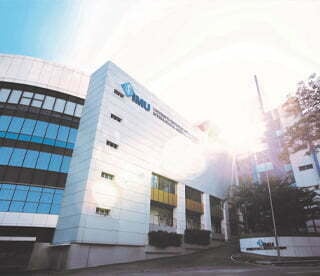

IMU: A MARKER OF EXCELLENCE
IMU leads the charge as a centre of global excellence and quality education.
Our commitment to maintaining high standards of quality and integrity can be seen through its accreditations from various reputable bodies. The autonomy in self-accreditation enables us to accredit programmes which do not require accreditation and recognition from relevant professional bodies. This showcases our commitment to advancing healthcare standards globally. Additionally, regular evaluation and review of all programmes, reaffirms our continued commitment to excellence in education and healthcare
SHAPING LEADERS FROM THE GROUND UP
At IMU, we don’t just educate; we empower individuals to become leaders and innovators in their respective fields by providing the leverage they need to explore, experiment, and uncover their full potential.
Our dedication to fostering cutting-edge learning environments is evident through the establishment of state-of-the-art healthcare facilities integrated with advanced digital technologies and artificial intelligence equipment. From our on-campus integrated IMU Healthcare Clinic and Centres, to our multidisciplinary labs such as the Clinical Skills and Simulation Centre, and E-learning labs.
Our academic landscape nurtures an inclination for research among undergraduates, postgraduates, alumni, and our faculty members. As we continue to push boundaries and embrace a multidisciplinary approach, IMU spearheads a new era of groundbreaking research and innovation.
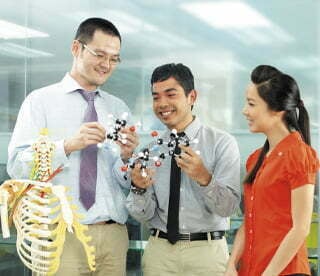
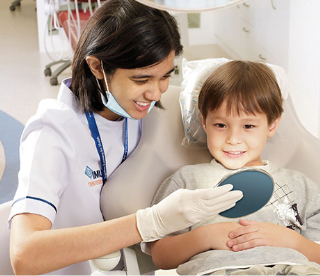
LASTING IMPACT: IMU’S UNWAVERING COMMITMENT TO COMMUNITY
Fuelled by passion and dedication, community service remains at the heart of IMU's journey in health.
Our vibrant IMU Cares Programme stemming from the early 2000s has evolved far beyond its humbling fundraising initiative. Today, it stands as a positive platform for experiential learning—an exciting adventure for all members of the IMU family to engage, learn, and make a lasting impact on the world around them.
Our new vision for the future underscores our dedication to transcend boundaries, inspire new possibilities, and empower the next generation of global leaders. We are here to elevate passion through the power of education, and help every dream become a reality.

Academician Professor Emerita Datuk Dr Asma Ismail, Fasc.
VICE-CHANCELLOR & CEO, IMU EDUCATION | PJN, DPMP, DSDK, PSK, SMP, BCN

Welcome to IMU, where possibilities are limitless, and education knows no bounds.
Our journey of evolution started in 1992, when Malaysia’s first global medical partnership programme was founded, reshaping Malaysia’s medical education landscape. This groundbreaking initiative gave Malaysian students the opportunity to begin their journey locally before venturing to one of five renowned Partner Medical Schools (PMS) across the globe. Since then, IMU has transcended its initial roots, establishing partnerships with over 35 esteemed universities worldwide—from Australia, Canada, China, Ireland, New Zealand, the United Kingdom to the United States of America.
Today, we continue to push boundaries and go beyond the traditional confines of healthcare. At IMU, we believe that healthcare encompasses a broader spectrum of compassion, personalised care, and community well-being. Guided by the One Health vision, we embark on a paradigm shift, integrating human, animal, and environmental health into a unified approach.
With this progressive outlook, IMU is boldly expanding its repertoire of medical and health science programmes with non-science programmes, to encompass the dynamic intersections of human, animal, and environmental health.
Our new vision for the future underscores our dedication to transcend boundaries, inspire new possibilities, and empower the next generation of global leaders. We are here to elevate passion through the power of education, and help every dream become a reality.”
For more information please visit IMU website at www.imu.edu.my or its blog at imunews.imu.edu.my.
Vision
Mission
Quality Policy
Learning Outcome Domains
All IMU University programmes adopt the principles of outcome-based education, whereby teaching, learning and assessment are constructively aligned to programme educational objectives (PEO) and programme learning outcomes (PLO).
These outcomes are designed to ensure that the graduate is ready for the workplace. These eleven generic outcome domains as are below:
Individual programmes will apply the above domains to develop their specific educational outcomes. These outcomes will drive all aspects of the curriculum in terms of content and organisation, delivery and educational settings, assessment and quality activities.
IMU Education Sdn Bhd is committed to a high standard of regulatory compliance in all our accounting, financial reporting, internal controls, and corporate governance and auditing. We have a Whistleblowing Policy as an avenue for employees and non-employees to raise concerns in good faith, without fear of reprisal. Download Policy
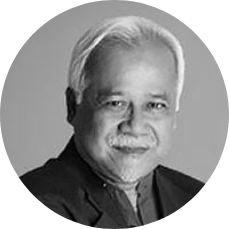
Tan Sri Dr Kamal Salih
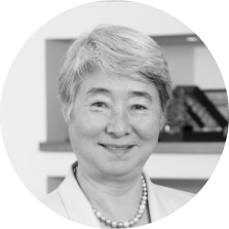
The Late Dr Mei Ling Young
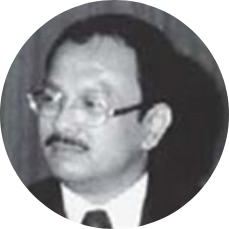
The Late Dr Saidi Hashim
30 years ago, it was clear that Malaysia was facing a serious shortage of doctors.
Our Story
1990 saw an acute shortage of doctors in Malaysia. Local universities were not producing enough practitioners. Studying medicine abroad was costly and beyond the means of many eligible students. Dr Kamal Salih, a visionary, and Dr Mei Ling Young, a social scientist with a strong interest in development, had a brilliant solution – if Malaysian students could not go out to get the medical training they qualified for, it would be brought to them.
Daring to Dream
Kamal and Mei Ling approached Dr Saidi Hashim who had helped found the Universiti Sains Malaysia’s (USM) Medical School. Together with Professor Ong Kok Hai, a USM colleague, the four began to visualise their dream of a medical school. They invited two leading medical educationists from the United Kingdom – Professor Ron Harden and Professor Ian Hart – to join them.
Bringing together their diverse expertise, the six brainstormed a unique education model where medical students would spend their first five semesters studying in Malaysia, and then move to a leading institution of higher learning overseas to complete their medical studies.
Five distinguished international universities embraced this radical concept and came on board as Partner Medical Schools (PMS) – making the aspiration of studying abroad accessible to more Malaysians.
A World’s First
The dream materialised in 1992 in the form of the International Medical College (IMC).
It became Malaysia’s first private medical college and introduced the world’s first programme to allow medical students to transfer their credits to a Partner Medical School.
The IMC was officially launched on 13 April that year by Education Minister, YB Datuk Amar Dr Sulaiman Haji Daud with the full support of his Ministry and the Ministry of Health Malaysia.
Phase 1
From 1992 to 1998, IMC focused on designing and building the first phase of its Medical Sciences programme which was recognised and accepted by some of the world’s best Medical schools.
In 1995, IMC started two intakes. By 1998, we were transferring abroad 68 students a year.
Turning Crisis into Opportunity
In 1998, the Asian financial crisis struck. Currencies fluctuated and the Malaysian ringgit went on a downward spiral. The Malaysian Government and parents sending students abroad for medical studies were badly hit. Some of IMC’s pre-Medical students ended up stranded and unable to continue their studies. Mei Ling had to negotiate with the PMS for some leeway and flexibility.
Phase 2
Seeing the need, the Government tasked Kamal and Mei Ling to fast-track the setting up of IMC’s Clinical School. This would allow IMC to become a full-fledged university. Students who completed their Medical Sciences programme could choose to transfer their credits either to a PMS or to continue locally at the IMC’s Clinical School.
Again, Professors Ron Harden and Ian Hart were consulted. Senior medical deans Professor Michael Orme of the United Kingdom, Dr John Ruedy of North America and Professor Ian Simpson from New Zealand were also recruited. Leadership was provided by Professor John Joseph Bosco, who was to become the first Malaysian Clinical Dean of the IMC. Together they formed the curriculum and designed the set up for the Clinical School.
The curriculum produced was innovative and modern and within a year, everything was finalised including staff recruitment.
IMC Becomes the International Medical University
University Status
On 4 February 1999, IMC was granted university status and became the International Medical University (IMU). The Clinical School was built to connect to the Hospital Tuanku Ja’afar (also known as the Seremban hospital), which is now the largest government hospital in Negeri Sembilan.
IMU welcomed its first batch of 46 students in September that year.
These students would be the first batch to have the option to complete their medical studies in Malaysia, and graduate with a Bachelor of Medicine and Bachelor of Surgery (MBBS) from IMU.
In 2001, just three years after the programme’s launch, IMU earned an accreditation from the National Accreditation Board, also known as the Malaysian Qualifications Register (MQA).
Clinical Exposure
Soon after its inception, IMU began collaborating with several hospitals to give its students exposure to the full spectrum of primary, secondary and tertiary medical care.
A “Senior Clerkship” programme was also implemented to allow final semester students to intern as housemen. This contributed significantly to the quality of IMU’s medical graduates.

Expanding into the Health Sciences
In 1996, IMU introduced a twinning programme for Pharmacy with the University of Strathclyde.
By 2004, we introduced our own Bachelor of Pharmacy programme and in 2005 the IMU launched its Bachelor in Nursing programme.
2008 saw the setting up of the Dentistry Faculty which offered the options to complete one’s degree in the IMU or to transfer credits to a Partner Dental School (PDS).
In our vision to provide a comprehensive and niche medical and health sciences education, which includes studies in complementary and alternative medicine, IMU achieved another first in Southeast Asia in 2010 when we introduced the evidence-based Chiropractic programme.
Following closely was the introduction of the Chinese Medicine programme in February 2011, where basic medical sciences were taught alongside clinical practices of Chinese Medicine. The programme adopted and applied a scientific and evidence-based approach to Chinese Medicine.
Other programmes IMU now offers are in Nutrition and Dietetics, and Psychology as well as non-clinical health programmes such as Medical Biotechnology, Biomedical Science and Pharmaceutical Chemistry.
Postgraduate Programmes
Since 2004, IMU has been offering postgraduate programmes, such as the MSc and PhD programmes by research.
Developing Our Research Potential
As with any good University, IMU began research activities in the year 2000, with the goal to become research driven.
In September 2012, the Institute for Research, Development and Innovation (IRDI) was established to grow our research potential capacity.
The IRDI’s key research areas cover Cancer & Stem Cell, Bioactive Molecules & Drug Delivery, Environmental & Population Health, and Health Professions Education Research.
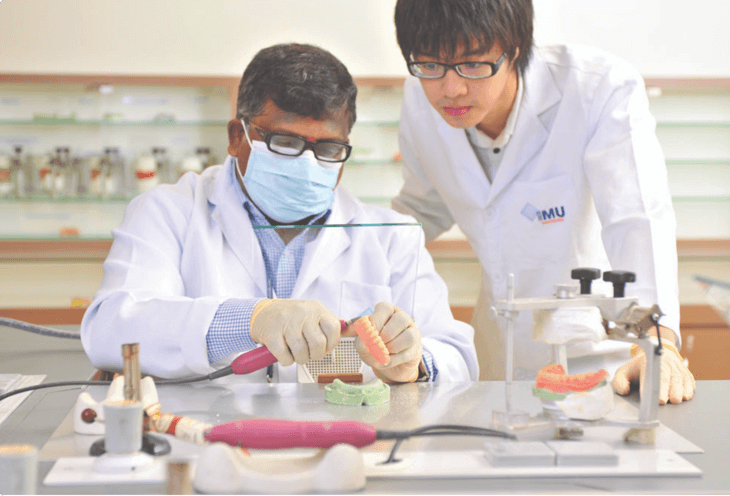
Between 2008 to 2011, IMU’s faculty published 568 papers, of which 281 (49.5%) appeared in respected Indexed scientific journals such as the Lancet, British Medical Journal, Cochrane Data Base Systematic Reviews and Human Pathology, to name a few.
A Shift: Medical Education Research
IMU also delved into medical education research, and since 2000 the university has initiated 947 research projects, by undergraduates, graduates and faculty.
Research in medical education has become increasingly important to ensure that medical curricula translates into healthcare that is evidence based.

Making Healthcare Holistic
Inculcating Social Responsibility
In 2002, IMU began looking at how it could produce healthcare professionals with a caring attitude and who were sensitive to the needs of their community.
This led to its first fund-raising project – a Charity Run held in the Bukit Jalil campus on 12 October 2002.
Serving the Community has since become ingrained in IMU’s values and identity.
Today, our community engagement services sees IMU students, faculty and staff regularly and intentionally promoting healthy lifestyles to vulnerable and underprivileged groups via health education, healthcare screenings and public health services.
They undertake these projects through IMU’s long-running Kampung Angkat (village partnership) programme, the Health and Wellness Programme, and the IMU Cares programmes.
The Present and Future
IMU has become a recognised integrated Medical and Health Sciences institution, offering education, healthcare and research in partnership with some of the world’s most respected individuals and institutions.
We strive to continually improve our programmes to ensure our graduates are in step with advances in technology, medicine and healthcare.
We remain focused on the central philosophy that guided our founders – access to quality medical education; innovation and imagination as a cornerstone; and continuous insights and reflection to visualise and realise IMU’s future.

Year 2024
Awards and Recognition
Institution Awards and Recognition
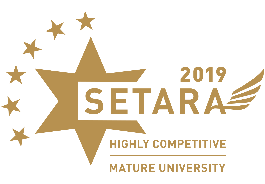
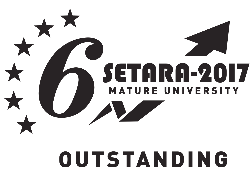
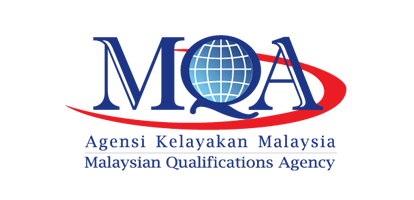
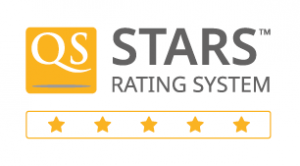
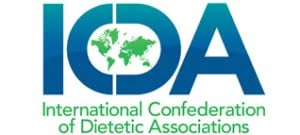
International Accreditation for Education Programs for Dietitian-Nutritionists 2018
For IMU’s BSc (Hons) Dietetics with Nutrition programme.
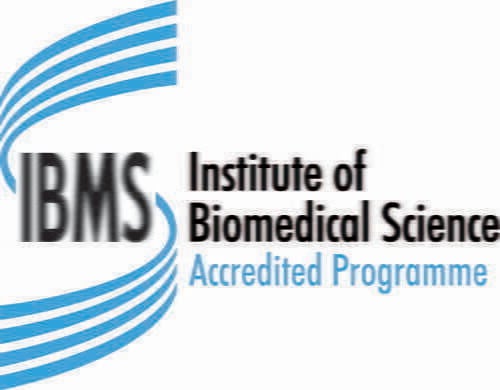
Institute of Biomedical Science Accreditation
for the BSc (Hons) Biomedical Science Full-time Programme Since 2017

Royal Society of Chemistry, UK Accreditation
for BSc (Hons) in Pharmaceutical Chemistry since 2014 and MSc in Analytical and Pharmaceutical Chemistry (MAPC) since 2019
Community Engagement Awards
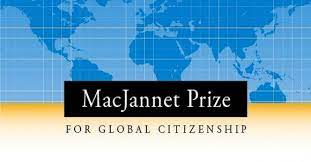

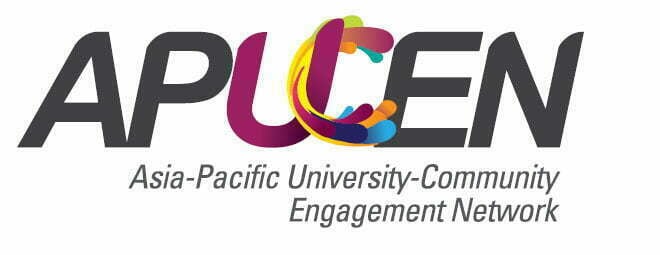
APUCEN Inaugural International Youth Volunteer Award 2017 (Entrepreneurship Category)
Special Award
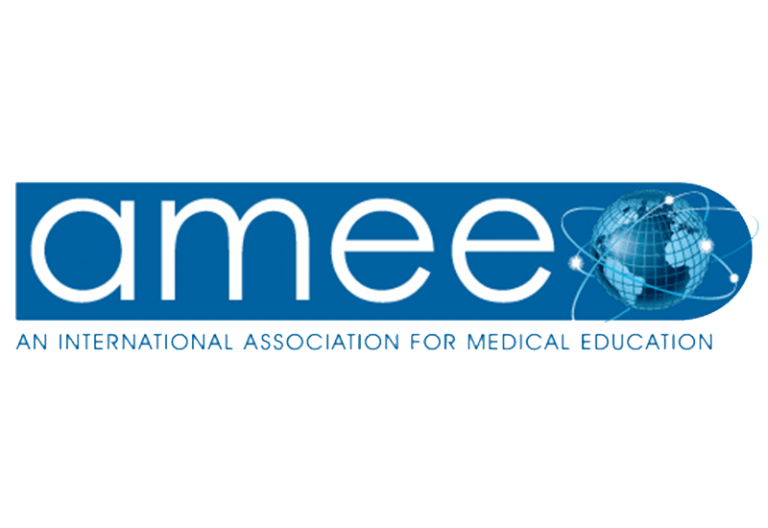

Annual Reports
The Vice-Chancellor’s Report summarises the University’s most notable activities and achievements for each academic year. It also includes meaningful stories about our students and captures IMU’s vision to continue being a leader in the education of innovative and caring healthcare professionals of the future.
View the Vice-Chancellor’s Report:
The IMU University recognises the importance of achieving sustainable development and to create long-term shared value for our students, staff, community and ultimately to secure our future.
Sustainability can mean many things. It can be directly related to how we care for our environment and our best attempts to reduce our carbon footprint. Or it can be about the significant practices we instill into the culture of our organisation to make it a meaningful, inclusive, and enjoyable workplace for our staff. It can also mean nurturing ownership and ensuring the continuation of a project by its benefactors, long after the project pioneers have withdrawn from it. At IMU, we have tried to incorporate these three different dimensions in the following areas: Environment, Community Engagement and Our People.
Environment
As a university and healthcare provider with thousands of people under our wing, we consume much energy and produce large amounts of waste. We see the need to live and work sustainably and responsibly, while continually inculcating the importance of conservation.
Water Conservation Programme
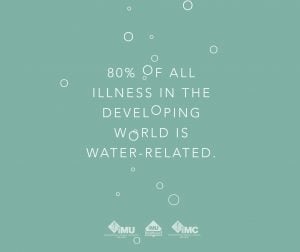
We do our best to nurture and ingrain good habits around the use of water.
As a start, upgrading works were carried out to make our facilities use water more efficiently.
Posters reminding students and staff to conserve water greet restroom users and remind them not to let the water run unnecessarily.
Additionally, World Water Day is observed through an awareness campaign via the University’s digital platforms, namely Facebook, Twitter, and Instagram.
Recycling Programme

Recycling bins are placed at strategic points around the campus to enable staff and students to responsibly separate and dispose of their waste.
e-Waste Campaign
In 2017, IMU launched its e-Waste campaign under the IMU Cares initiative and in collaboration with the Recycling Club and the MPU4 programme.
The campaign has since been ongoing and aims to encourage students, staff and the community we work with, to recycle their e-waste in an accountable way.
To support this effort, the University opened its doors as an e-Waste collection center for the community. In 2019, a total of 7,039 kg was collected and sent for recycling.
Educational materials such as posters, an animated video and leaflets were also created and distributed by staff and students to enhance awareness amongst the IMU Community. Seminars and workshops have also been conducted in line with this campaign.
Transportation
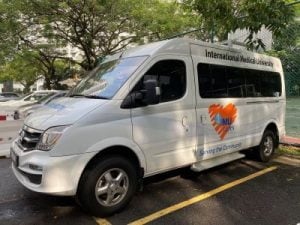
Transportation is responsible for around one-fifth of global carbon dioxide emissions and in most cities, is the leading cause of pollution.
As we are a city campus, IMU has considered how we can reduce our emission contribution.
We began by assigning designated parking areas for students and staff and from these areas, shuttle busses provided transport to students and staff around the campus. This arrangement greatly reduced emissions as well as traffic congestion in and around our campus grounds.
Chartered buses and the IMU Van are also available whenever our students need to be transported for community service activities, events and field trips.
Community Engagement
The University’s long-term and sustainable goals of being a diverse and inclusive community are seen through the positive impact made among the IMU Community comprising of students, staff and alumni, as well as the community at large. These initiatives are driven through a community-based participatory research approach, service learning and outreach services focus that are aligned with the United Nation’s Sustainable Development Goals (UN SDG).
Providing multiple platforms of engagement via service learning in the formal curriculum to IMU Cares – the University’s outreach programme to student-led community charity clinics, clubs, societies and the IMU District Partnership Initiative (DPI), the community engagement’s office oversees the University’s commitment to sustainability, community, and social activities.
Click here to learn more about our IMU Cares programme.
Our People
Our staff and faculty are IMU’s greatest asset and while we do have financial objectives and strategies as an organisation, they do not trump the desire to provide a conducive work-environment.
We want to retain our people for as long as possible. By applying sustainability into the DNA of our human resources blueprint, we attract the best talents and keep them.
We do this by nurturing ownership, prioritising ethics and quality over profits and by fostering shared vision and goals. We also provide volunteering opportunities for our staff, continuous training and regular reviewing of workplace practices.
These pursuits boost employee morale and keep them engaged and fulfilled.
Our efforts were acknowledged when we were awarded the AIA Vitality’s 2019 Malaysia’s Healthiest Workplace and Malaysia’s Healthiest Employer for a medium-sized organisation.



